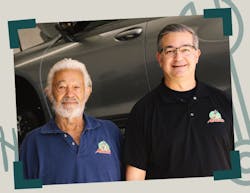Despite what some people may say, not everyone wants a good old-fashioned phone call to handle business. A Twilio poll discovered that 89 percent of customers prefer doing business through text messaging. And the proverbial icing on the cake: most mobile users respond to text messages within 19 seconds of receiving them and a whopping 70 percent reply within five minutes of a notification. The speed at which we do business is far more rapid than it was in 2012, and what’s better, customers are willing to receive messages from businesses.
This communication breakthrough is new. It wasn’t until the pandemic that consumers shifted their texting habits from predominantly person-to-person to person-to-business. The need to connect with health care providers, delivery services, and other businesses made mobile phones an all-access communication tool. Push notifications have been used to set and confirm health care appointments, order prescription medicine, and pay bills.
Today, people want to maintain that same speed and convenience. On top of that, they want to spend money with businesses they can trust and that care about the community they serve. Modesti’s Car Care Center in Culver City, California, checks all the boxes.
Convenience
Nick Modesti says engaging customers on their mobile phones saves valuable shop time and is one of the services they have adopted over the last decade to help improve communication between the customer and the shop. Whereas in the past they may have had to wait hours before hearing from a customer in order to advance a repair or hear back after an update, they now get responses within minutes.
The shop uses a text messaging service to manage its texts and digital inspections. Modesti likes the read receipts which confirm that his text was delivered and viewed. It’s a way of communicating that he couldn’t imagine 10 years ago.
“I can see on our computer when they look at their inspection. A message pops up that they viewed it,” he says. “[Texting] has opened up communications quite a bit because now we can remind them of their services, tell them their cars are ready, text them the inspection we did on their car so they can see it all on their phone. That is a lot different than a [making] phone call and leaving a message and waiting for them to call you back.”
Modesti is sold on marketing and communicating via mobile phones. He encourages more shop owners to get on board.
“If you're not texting, or don't have a program for that, it would really help a shop,” he says.
Care
Modesti’s uses warranties to boost consumer loyalty and confidence. The services covered under its warranties can be redeemed anywhere in the United States, which eases the minds of consumers who get repair work done at the shop.
“Ten years ago, I think we were offering a 2-year, 24,000-mile warranty. Now we're offering a 3-year, 36,000-mile warranty on most things and that's something we joined in with TechNet through Worldpac. We have a national warranty if a customer drives across the country and something goes wrong. [If] it's under warranty, then they've got somebody over on the other side of the country that they can take their car to. It’s nice for us, because the shop over there calls TechNet, and they take care of it. It’s a nice feature,” says Modesti.
Consciousness
Modesti says being environmentally conscious and running a clean operation has always been part of his DNA. Fluids drained are recycled and waste is carried from the shop by certified, state-approved haulers. Batteries are safely replaced and exchanged and wastewater from parts cleaning is recycled. These simple acts earned the shop a Good Earthkeeping Award from the city of Los Angeles.
“Think about it, what's the perception of repair shops? Greasy? Dirty? When we built this place, we purposely built it in such a way that the customer doesn’t see grease, and if they walk into the back of the shop, they're not going to see a grease pit. They're going to see a clean shop. Trying to be environmentally conscious about what we do,” Modesti says. “We want to run a clean shop. We're not dumping stuff down in the alley or down the gutter. And I think most shops are in that same category.”
About the Author
Chris Jones
Group Editorial Director
Chris Jones is group editorial director for the Vehicle Service & Repair Group at EndeavorB2B.
A multiple-award-winning editor and journalist, and a certified project manager, he provides editorial leadership for the auto care industry's most trusted automotive repair publications—Ratchet+Wrench, Modern Tire Dealer, National Oil & Lube News, FenderBender, ABRN, Professional Distributor, PTEN, Motor Age, and Aftermarket Business World.
Subscribe to receive news and updates from any of these industry-leading brands.

